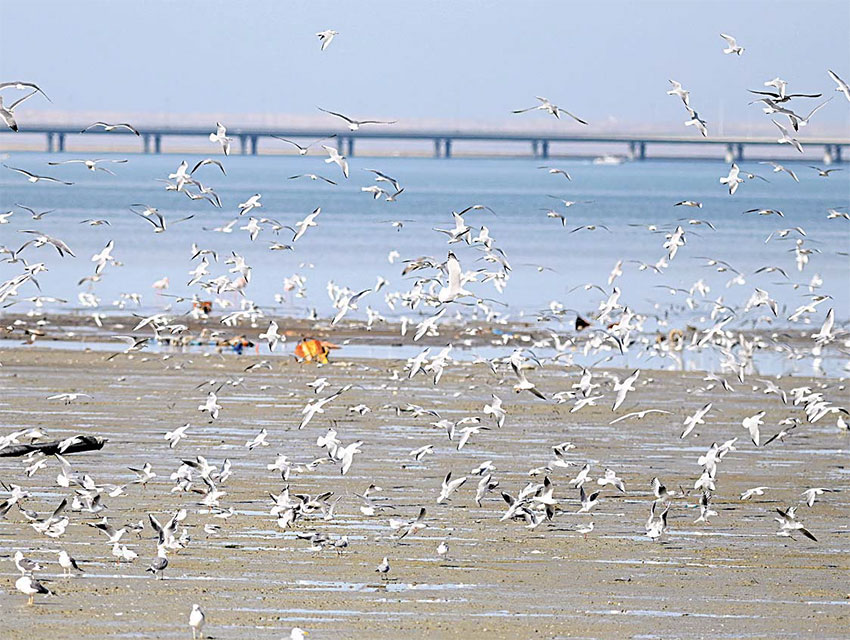19/10/2023
19/10/2023

KUWAIT CITY, Oct 19: Dr. Sarah Al-Dosari, a researcher at the Kuwait Institute for Scientific Research (KISR), revealed that Kuwait serves as a transit hub for around 400 species of migratory birds, following three major migration routes spanning from Eastern Europe and Central Asia to Africa and India.
Dr. Al-Dosari made this announcement during a symposium organized by KISR on the occasion of World Migratory Bird Day. Despite its compact geographical size, Kuwait stands as a pivotal meeting point for migratory birds, boasting a rich diversity of both resident and migratory avian species, reports in Al-Rai daily.
She emphasized that these migratory birds inhabit diverse ecosystems, including coastal regions, freshwater lakes, agricultural areas, and desert landscapes. Their numbers surge during the spring and fall migration seasons.
The field of acoustics has undergone significant development, underscoring the importance of observing and researching bird populations. Birds are invaluable indicators of environmental well-being and equilibrium. One modern approach to studying avian behavior is through the practice of environmental acoustics, which equips researchers with the tools to identify bird species, evaluate their diversity, and gain insight into their behavior by analyzing their vocalizations.
It is worth noting that each living species possesses a distinct vocal fingerprint, enabling their identification, with the potential to convert this vocal signature into a form of communication.
The progress in environmental acoustics is owed to the availability of user-friendly recording devices. These portable instruments are easy to deploy and can function for extended periods, offering the capability to schedule sound recordings at specific intervals.
They also facilitate access to challenging environments, including dense forests, remote deserts, and deep seas. Additionally, they are cost-effective compared to alternative equipment.
In a noteworthy development, Dr. Al-Dosari unveiled the establishment of an "environmental acoustics techniques" center within the institute. This center is dedicated to conducting research and studies while exploring optimal methods for establishing natural reserves.
Khaled Al-Hajri, the leader of the Green Line Environmental Group, highlighted the crucial role of Kuwait's geographical location in attracting migratory birds, contributing to the enhancement of the nation's biodiversity and environmental vitality. In a statement, Al-Hajri called for collaboration among various stakeholders to ensure the well-being of both resident and migratory organisms within the country.


